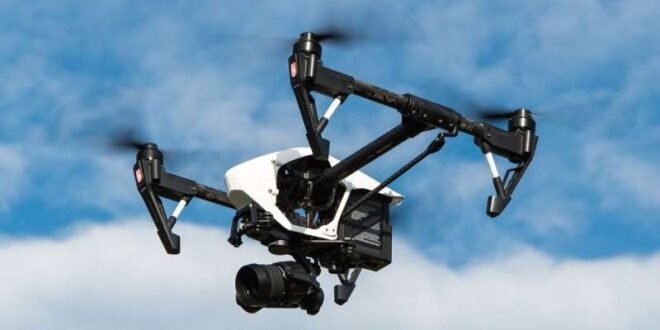When it comes to drones, the Singapore public is not as keen for them to be used to provide services around their living spaces, finds a study by researchers at the Nanyang Technological University, Singapore (NTU Singapore). However, they are more accepting of drones being used in areas like recreational spots or industrial areas.
There is growing global interest in the use of drones to provide a range of applications—from building inspection to last mile commercial delivery—that promise productivity gains and cost reductions.
In Singapore, the use of drones is picking up, with the government adopting them for various projects in the Smart Nation drive, where technology is used for direct and positive impact on people’s lives.
Against this backdrop, an interdisciplinary research team led by Associate Professor Lim Beng Chong from the Nanyang Business School and Professor Low Kin Huat from the School of Mechanical & Aerospace Engineering carried out a study to better understand public attitudes towards the technology.
The study showed that while the Singapore public is ready for extensive drone application in the country, acceptance levels differed significantly depending on the context of use. The public is least welcoming towards drones when flown above residential estates but tend to be more embracing when they are used in industrial zones.
The NTU study was conducted from April to June 2019, using a globally recognized survey model. It involved 1,050 Singaporeans and permanent residents aged 21 to 80.
“We can expect drones to become commonplace in our daily lives in future,” said Assoc Prof Lim. “It is thus important for policymakers, businesses, and regulators to understand how the public feels about the technology, as its acceptance levels will have a direct impact on the scope and pace of adoption. Our work can guide efforts to introduce drone use, by providing insights into public perceptions that are specific to a highly urbanized environment like Singapore, including suggestions on how to improve acceptance levels.”
Published online in the scientific journal Technology in Society in December 2020, this is believed to be the first study on the perceptions of drone use in a highly urbanized environment in Asia.
Fears and concerns surrounding drone use
Previous studies have focused on drone use in western countries and did not consider the context of drone applications in different contexts. The NTU study looked at public acceptance of drone use in four different types of urban space—residential, recreational, industrial, and commercial areas. It also included the function of the drone (i.e., what it is used for) and its operators.
The NTU research team found that the Singapore public is more accepting of drone use by government, commercial and industrial users than by private individuals. Drones for the purpose of search and rescue by authorities was most welcomed (92%), but the public approved less of commercial and industrial players using drones to transport people (62%). Overall, the study found support for private use is lower than for most other purposes.
The study identified two critical factors influencing public acceptance of drone use. First, the fears and concerns of the public. Among the top four worries indicated by participants were, in descending order: the misuse of drones by unauthorized personnel; inability to identify whether drones are filming or not; drones being a threat to one’s physical safety if parts of it fall; and the loss of privacy.
Second, the perception of the benefits of the technology. The public believe the technology is more beneficial when used for consumers, the economy and improving workplace safety, but less so for improving neighborhood security.
The findings highlight that the public differentiates where and how drones are being used. Therefore, the NTU research team said, communication and educational strategies should be adapted and customized to the contexts of drone applications, to effectively improve public acceptance.
For example, when educating the public about drone use in residential areas, the information might be focused on the safety of drone use, instead of its purported benefits.
“Drone technology represents a promising industry with many more uses being developed every day,” said Prof Low, co-author, and drone expert from the School of Mechanical & Aerospace Engineering.
“By understanding the relationship between the factors influencing public acceptance and the context of drone use, developers and the authorities can focus their attention on specific things that are problematic to the public. If it is a fear of falling parts when drones are flown in residential areas for example, developers can work on ways to demonstrate that their parts will not become detached. Or the authorities can map out and regulate safe flying routes such as over housing estate rooftops, thus contributing to a better public reception for drones,” he said.
Sony Airpeak drone: A small unmanned aerial vehicle that shoots 4K movie videos from above
Lynn Kai Lin Tan et al, Public acceptance of drone applications in a highly urbanized environment, Technology in Society (2020). DOI: 10.1016/j.techsoc.2020.101462
Nanyang Technological University
Citation:
Study finds Singapore public less keen on drone use in residential areas than industrial zones (2021, January 28)
retrieved 6 February 2021
from https://techxplore.com/news/2021-01-singapore-keen-drone-residential-areas.html
This document is subject to copyright. Apart from any fair dealing for the purpose of private study or research, no
part may be reproduced without the written permission. The content is provided for information purposes only.
 Unmanned Aerial Vehicle The latest drone news
Unmanned Aerial Vehicle The latest drone news




